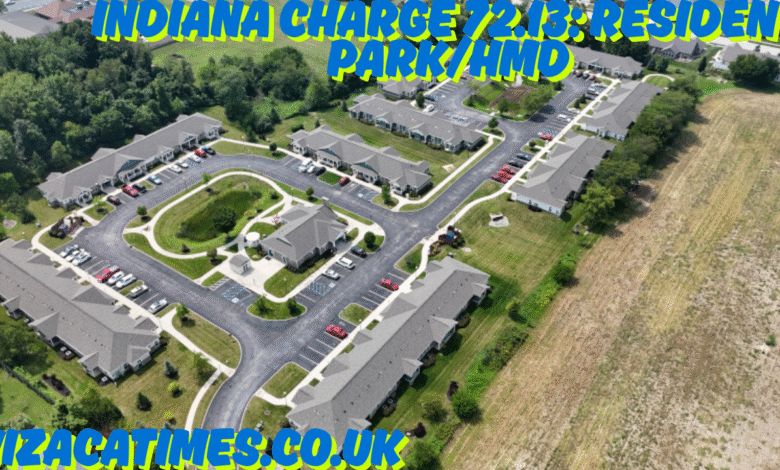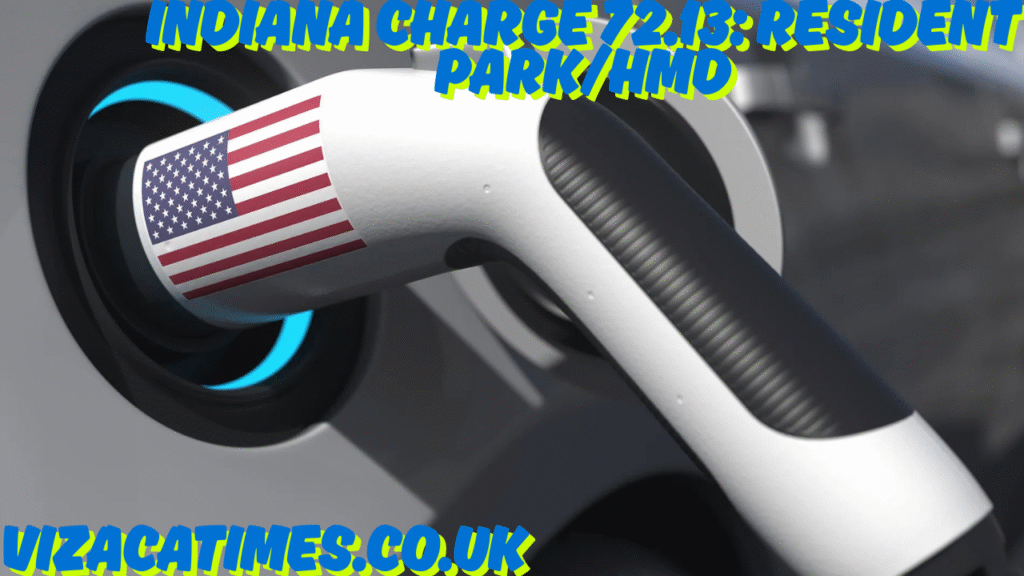Indiana Charge 72.13: Resident Park/HMD?? Everything You Need to Know About Indiana Charge 72.13

Understanding legal charges, codes, or civic ordinances can be confusing, especially when they involve specific state or municipal regulations like Indiana Charge 72.13: Resident Park/HMD. This code, often cited in local enforcement records or civil notices, appears frequently in public records and citations related to parking regulations or mobile housing developments (HMD). But what exactly does this charge mean? And what are the implications for residents, vehicle owners, or park management authorities?
This detailed article will explore Indiana Charge 72.13: Resident Park/HMD??, its possible interpretations, related enforcement protocols, and some loosely associated terms such as “does a goofy c15 by andrew use magnetic strips”—which might reflect the growing curiosity around equipment and design in similar civic infrastructure.
What is Indiana Charge 72.13: Resident Park/HMD??

Indiana Charge 72.13: Resident Park/HMD appears to be part of a municipal code system used in Indiana, possibly under Title 72, which generally relates to traffic or parking regulations in many municipalities. While exact definitions may vary across Indiana towns or counties, the charge 72.13: Resident Park/HMD most likely refers to an ordinance about parking regulations in residential areas or Housing/Mobile Developments (HMDs).
In simpler terms, this might deal with:
- Whether residents are allowed to park in certain areas.
- Time restrictions on parking in residential zones.
- Requirements for parking permits within mobile home parks or housing development areas.
The addition of “HMD” (Housing/Mobile Development) points to rules specific to mobile home communities, where space is limited and regulatory control over resident vehicles is tightly managed to avoid congestion or unauthorized occupation.
The Significance of Charge Numbers like 72.13 in Indiana

In Indiana, city codes or charge numbers such as 72.13 are often used in traffic citations and municipal court filings. These are not criminal charges but rather civil or regulatory infractions, particularly under local parking enforcement.
For example:
- A resident violating parking limits in a restricted area may receive a ticket with the code 72.13: Resident Park/HMD.
- Outsiders parking in resident-only zones may also face this charge.
- Non-compliance with HOA or HMD parking rules can trigger this citation.
Where Do You Encounter Indiana Charge 72.13: Resident Park/HMD??
Such a charge is commonly seen in:
- Police blotters
- Public record searches
- Traffic citations databases
- Court documents involving minor ordinance violations
These codes are often part of automated systems used by law enforcement to standardize offenses across city limits and make record-keeping efficient.
Who Does Indiana 72.13: Resident Park/HMD Affect?
This regulation primarily affects:
- Residents of Mobile Parks or Housing Developments – who may require permits to park in designated areas.
- Visitors – who must comply with guest parking rules and time limitations.
- Property Management Companies – responsible for enforcing these regulations.
- City Parking Enforcement Officers – who monitor and issue citations.
Failure to follow the outlined parking rules might result in fines, towing, or even restriction from future vehicle registration depending on the severity and frequency of violations.
Is Indiana Charge 72.13: Resident Park/HMD Criminal?
No, Indiana Charge 72.13: Resident Park/HMD is generally a civil infraction, not a criminal offense. It’s comparable to receiving a parking ticket. It does not go on a criminal record but may affect your municipal compliance record and can accrue late fees if ignored.
The Role of HMD (Housing/Mobile Development) in Enforcement
Housing/Mobile Developments in Indiana often operate under dual governance:
- Local Municipal Code
- HOA or Property-Specific Rules
Indiana Charge 72.13: Resident Park/HMD bridges the enforcement of local traffic laws with the specific needs of tight community layouts found in mobile parks. The HMD environment brings unique challenges:
- Limited parking space
- Narrow roads
- Safety concerns for residents, especially children
- Heavy reliance on enforcement to preserve community order
Ties to Broader Municipal Planning and Safety
Regulations like Indiana 72.13: Resident Park/HMD serve broader public purposes. While they may seem minor, they:
- Prevent emergency vehicle obstruction
- Ensure fair parking distribution
- Reduce visual clutter or abandoned vehicles
- Encourage compliance with zoning plans
This aligns with the urban development objectives of most Indiana cities striving to balance density with livability.
Does a Goofy C15 by Andrew Use Magnetic Strips? A Curious Addition
The phrase “does a goofy c15 by andrew use magnetic strips” seems unrelated on the surface, but in the context of park infrastructure or enforcement systems, it raises an interesting point. Many modern vehicle monitoring systems—including those used in Housing/Mobile Developments—do use magnetic strips or RFID technologies.
A “Goofy C15”, perhaps referring to a custom-built access card, parking meter device, or coded system by a person or brand named Andrew, might employ magnetic strip tech. This could play a role in:
- Gate entry systems in resident-only parking
- Vehicle recognition at barriers
- Permit validation mechanisms
While speculative, this reflects how security technology integrates with parking enforcement, especially in tightly regulated HMD zones.
Compliance Tips for Residents and Visitors
To avoid a citation like Indiana Charge 72.13: Resident Park/HMD, follow these steps:
- Always display proper parking permits if required.
- Park only in designated areas.
- Respect signage—particularly those indicating “Resident Parking Only” or “Permit Required.”
- If you’re a visitor, check in with property management or your host for guest parking rules.
- Do not park in fire lanes, emergency access areas, or reserved spots.
Summary: Why Understanding Indiana Charge 72.13: Resident Park/HMD Matters
Whether you’re a resident of an Indiana mobile park, a visitor, or a property manager, knowing what Indiana Charge 72.13: Resident Park/HMD represents can prevent avoidable fines and legal confusion. This charge, while civil, highlights the importance of orderly parking in structured housing environments.
And for those curious minds wondering, “does a goofy c15 by andrew use magnetic strips”, perhaps the answer lies in the increasing use of smart tech in such resident enforcement systems.
FAQs about Indiana Charge 72.13: Resident Park/HMD??
Q1: Is Indiana Charge 72.13: Resident Park/HMD a criminal offense?
A: No, it is a civil ordinance violation, usually resulting in a ticket or fine.
Q2: What does HMD stand for in this code?
A: HMD most likely stands for Housing/Mobile Development, referring to community-specific regulations.
Q3: Who issues this citation?
A: Local law enforcement or municipal parking authorities within Indiana towns or cities.
Q4: Can I contest this charge in court?
A: Yes, like most civil infractions, you can appeal it in municipal court, especially if issued incorrectly.
Q5: What happens if I ignore a 72.13 ticket?
A: Late fees may apply, and in some cases, the vehicle may be towed or further administrative actions may be initiated.
Q6: What does the phrase “does a goofy c15 by andrew use magnetic strips” mean here?
A: While unrelated directly, it hints at curiosity about parking tech systems—some of which may indeed use magnetic strips for access control.
Conclusion
Understanding Indiana Charge 72.13: Resident Park/HMD?? is essential for responsible vehicle ownership and residency in housing or mobile developments across Indiana. These codes, while simple, carry significant weight in maintaining community order. Always remain informed, follow posted rules, and when in doubt, seek clarification from your local municipality or housing manager.
Also read : GVF90433S Gama Hot Water Heater Specs, ?? – A Comprehensive Breakdown



